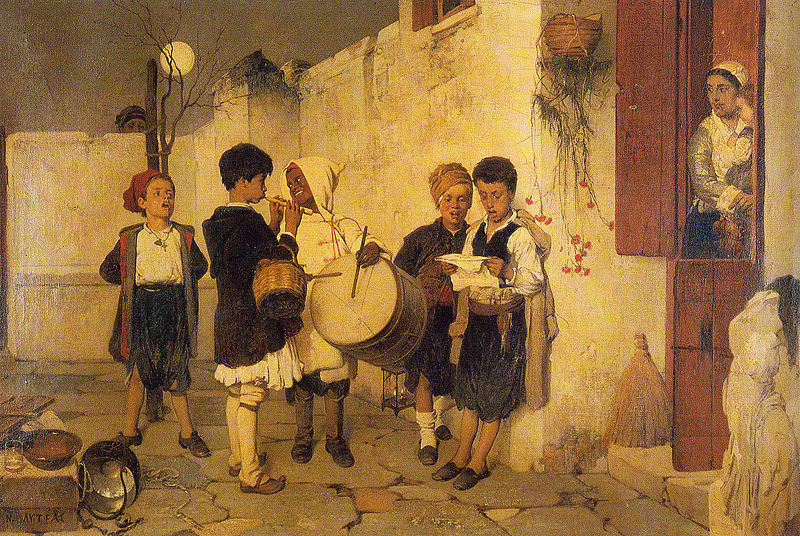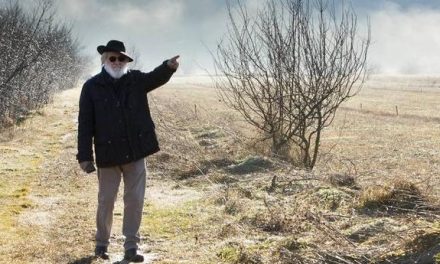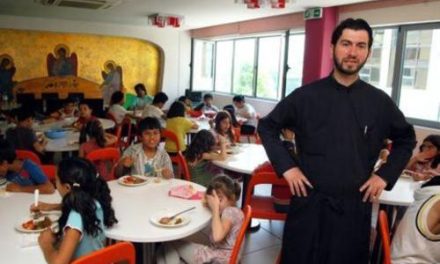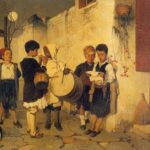If you find yourself in the streets of any Greek city, town or village on the morning of December 24, you will likely happen upon various groups of children or teenagers carrying small metallic triangles, ringing the bells of residential buildings or entering shops and asking “Na ta poume?” (“Shall we sing them?”). These are Christmas carolers asking to sing the kalanda.
Going door to door and singing the kalanda is one of the most characteristic Christmastime traditions throughout Greece – and not just on Christmas Eve: there are also kalanda for the New Year and the feast of Epiphany.
The kalanda tradition has a long history, with its roots being traced back to early byzantine times. In fact, the official church initially was against the custom, as it was evidently inspired by the observance of the calends (or kalends), which was the name the Romans gave to the first day of the month (and from which the English word “calendar” derives – as well as the Greek kalanda.)
The kalanda are always sung in the morning of Christmas Eve, New Year’s Eve and the eve of the Epiphany (January 5), usually by children or young teenagers. In earlier times, the groups would have various instruments (drums, flutes, bagpipes etc) and often carried with them a small wooden boat, which was the traditional Greek symbol for Christams, before the custom of the Christmas tree became widespread. Today, children usually carry triangles or just sing a capella. Traditionally, people would give the young carolers Christmas treats such as melomakarona and diples, but for many decades it has become commonplace to give money.
It should be noted that the members of the government, the president, the heads of political parties etc customarily have the kalanda sung to them by several choirs, members of associations, unions, clubs and other organizations, often representing various parts of Greece.
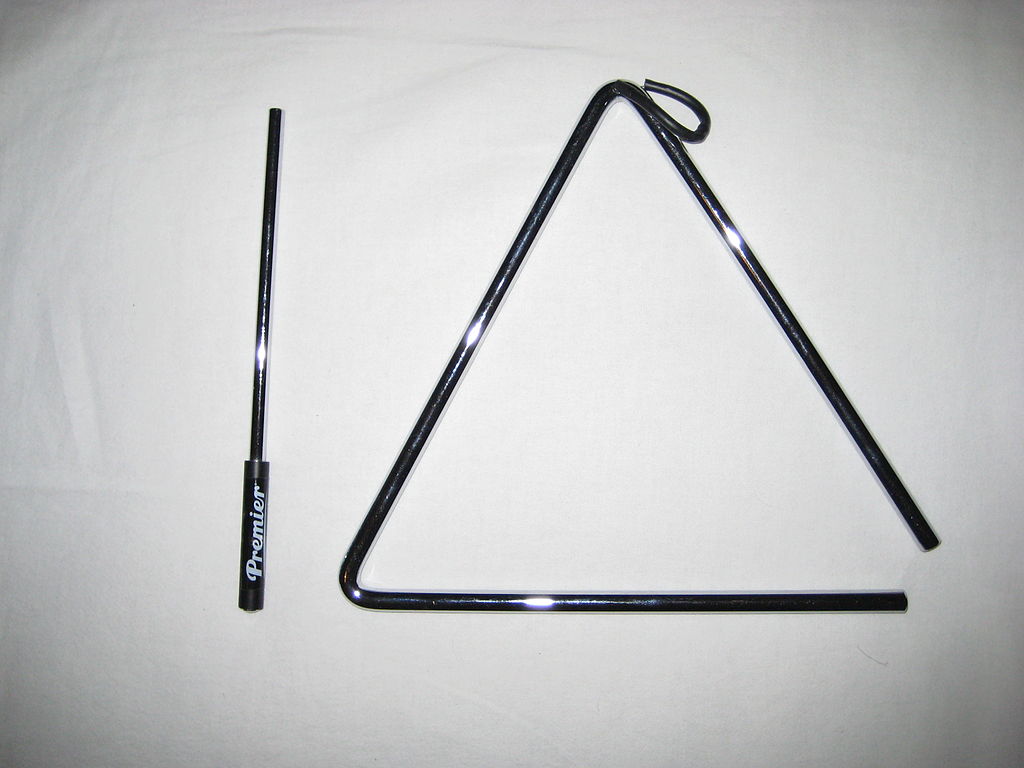
Christmas kalanda
The traditional Greek Christmas carol is also known as “Kalin esperan arhontes“, from the opening line. As is apparent in the song, the carols were originally sung on the evening of Christmas Eve, before it became commonplace to sing them in the morning. Its first two verses are:
Good evening my lords,
If this be your will
Let me tell of Christ’s holy birth
In your noble house.
Christ is born today,
In the city of Bethlehem,
Heavens rejoice,
The whole of nature revels.
In recent decades, some children may instead choose to sing the song “Trigona, Kalanda” (“Trianles, carols”), which is basically Greek version of the internationally popular American song “Jingle bells”. There are also numerous local variations usually sang in other regions, in rural parts of Greece or on the islands.
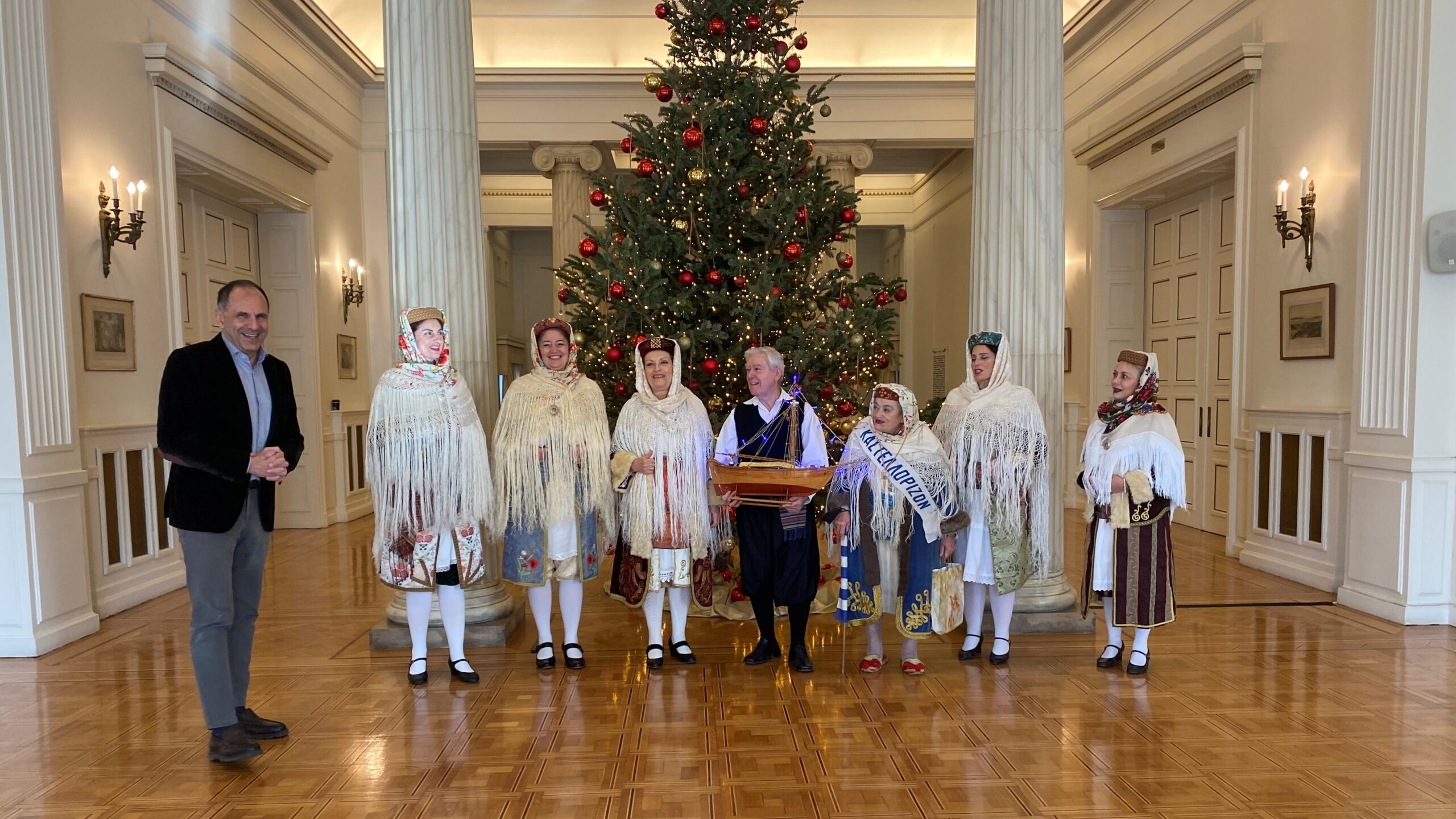
New Year’s kalanda
There are also various local kalanda for the celebration of the New Year. The most common, sung in most Greek cities, probably also originates from Byzantine times, and indeed has some lyrics not easily understood by people today. It is widely believed to be a combination of a hymn to Saint Basil -the Greek equivalent of Father Christmas, whose name day is celebrated on New Year’s Day, and who allegedly brings the presents- and a romantic confession to a noblewoman. Its first two verses are:
First day of the month and the year,
My tall rosemary shrub
And a start to a good year,
Church with a holy throne (or dome).
The first time Christ came,
Holy and spiritual,
To walk on earth,
And give us joy.
Often, young carolers conclude their singing with the exclamation “Kai tou hronou!” which roughly translates “(May we do this) again next year”, the equivalent of the wish “many happy returns”, also used for birthdays, name days and anniversaries.
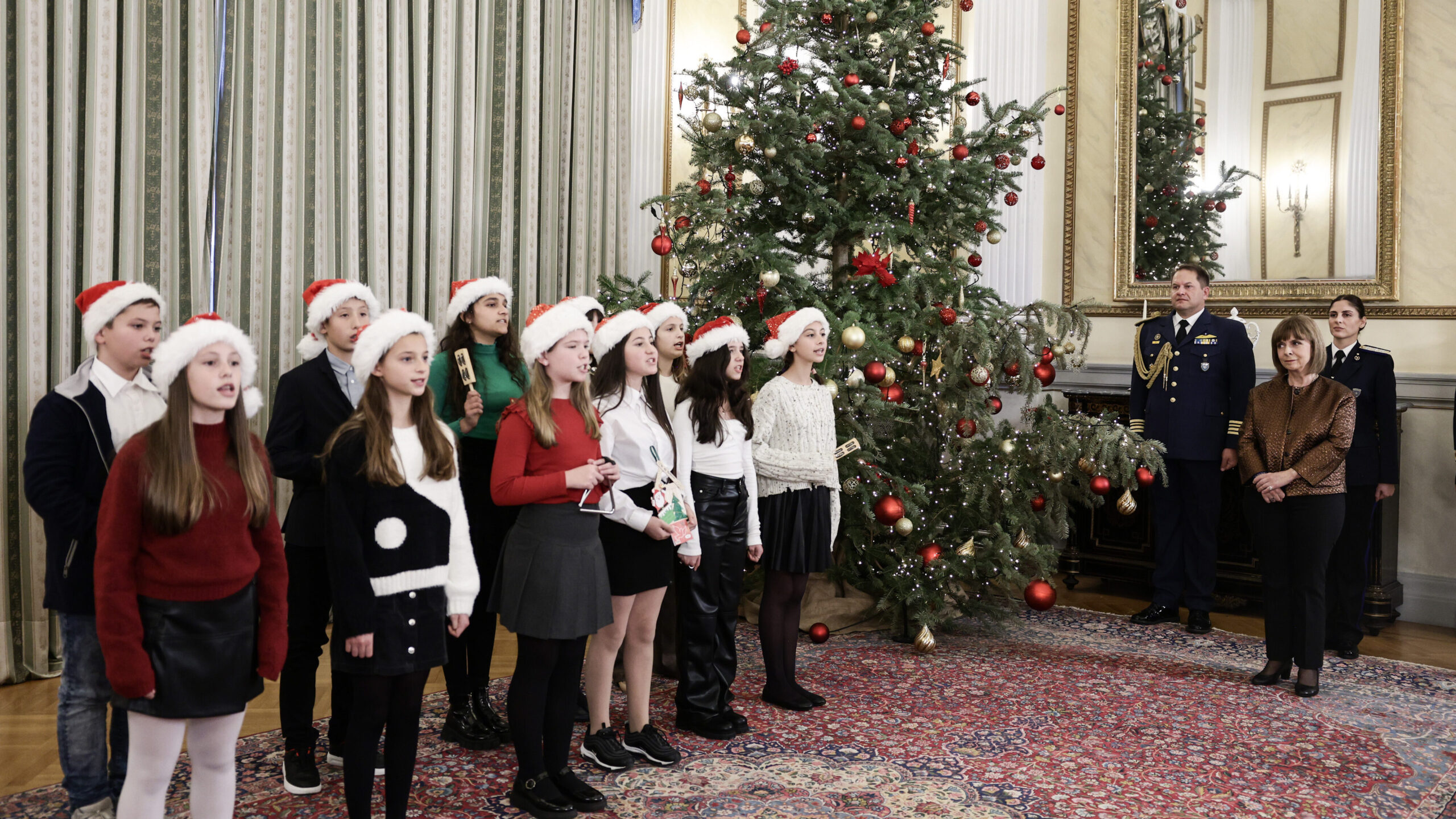
Epiphany kalanda
The feast of Epiphany, observed on the 6th of January, marks the end of the Twelve Days of Christmas; in Eastern Orthodox tradition, it is usually referred to as Theophany, and commemorates the Baptism of Jesus in the Jordan River (at about thirty years of age), instead of the Adoration of the Magi.
In Greece it is often referred to as the “Day of the Lights”, or simply “the Lights” (ta Phota), to symbolize the enlightenment of humanity by the revelation of the Holy Trinity. Although it is an important feast, it is mainly associated with the Great Blessing of Waters on the very day, and singing the kalanda door to door is nowadays much less common, especially in cities. These are the first lyrics of the song:
This is the day of the Lights and the enlightenment,
Great is the joy and the blessing.
Down by the Jorden River,
Our lady the Virgin Mary sits.
Good morning, good morning.
Good day to you, my lord and lady.
Read also via Greek News Agenda: Christmas Traditions in Greece; Greek and Roman origins of Christmas traditions; The Greek New Year’s tradition of the vasilopita; Theophania: The Greek Orthodox feast of Epiphany
N.M. Intro image: Nikephoros Lytras, The kalanda, 1872
TAGS: HERITAGE

